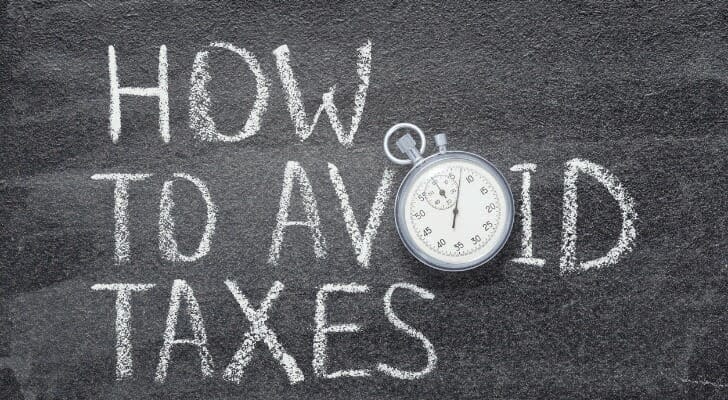Mark Henricks
·6 min read
If you keep money in a regular savings account you will generally owe federal income taxes on the interest that is earned. You’ll pay taxes at your regular rate the year interest is earned, whether or not you withdraw from the account. You can avoid paying taxes on interest with the help of certain tax-advantaged accounts used to fund retirement, healthcare and education expenses. However, these accounts come with restrictions that make them unsuited to keeping emergency savings. To help you decide how to save for various purposes while minimizing your tax burden, talk to a financial advisor.
Savings Account Interest Tax Basics
The conventional savings accounts offered by most banks and credit unions and some other financial institutions, including online banks, are ideal for saving money for short-term needs. They often have some restrictions on the number of withdrawals monthly, so they aren’t as well-suited to paying regular bills as checking accounts. But their owners can readily access funds when needed, and they incur low and sometimes no monthly service fees.
One drawback is that even high-yielding savings accounts pay only modest interest that is rarely enough to even keep up with inflation. And, to make matters worse, the Internal Revenue Service expects its owners to pay income taxes on the interest that is earned. Taxes are levied at the owners’ regular tax rates according to income and must be paid even if the interest is left in the account as opposed to withdrawn and spent.
If you’re ready to be matched with local advisors that can help you achieve your financial goals, get started now.
Can Taxes on Savings Account Interest Be Avoided?
In most cases, the tax that you’re required to pay from the interest earned in your retirement account cannot be avoided. Most places where you park your cash, especially safe places to keep your money like a savings account, require you to pay tax on earned interest. Once you hit the threshold of $10, it will be reported to the IRS and there is no way around paying the tax.
However, there are two ways to avoid paying taxes on the interest earned in your savings account. Both ways involve saving your money in a tax-advantaged account and not in a regular savings account. The two types of tax-advantaged savings accounts you need to look for are:
An account that lets you deposit pre-taxed money.
An account that allows the money in the account to grow tax-free.
Tax-Advantaged Savings Accounts
Now let’s take a closer look at each type of savings account that you might choose if you’re looking to avoid taxes on interest. None of the accounts offer the same flexibility as the conventional savings account, but they can save you quite a bit on taxes if you have a substantial amount saved. The major tax-advantaged savings account options are:
Roth Individual Retirement Account (IRA) or Roth 401(k):Interest earned in a Roth account is not taxed until it is withdrawn. And, if you are older than age 59 ½, you will owe no income taxes at all on the interest. However, early withdrawals before age 59 ½ incur a 10% penalty in addition to any income tax due. Contributions to Roth accounts have already been taxed, so those can be withdrawn any time without tax or penalty.
See AlsoTreasury Bills (T-Bills)Traditional IRAs and non-Roth 401(k) accounts: These accounts do not have to pay taxes in the year interest is earned, as regular savings accounts do. However, when the interest is withdrawn it is taxed as ordinary income. Withdrawals of interest or the previously untaxed deposits before age 59 ½ also incur the 10% penalty as well as being taxed as regular income.
Coverdell savings accounts: These are designed to help parents pay for minor children’s educational expenses. Interest earned on funds in a Coverdell account can be withdrawn interest-free but only if the money is used to pay eligible education expenses.
529 college savings plans:A 529 plan lets interest on deposits grow without taxes and also allow withdrawals free of tax when money is spent on eligible education expenses.
Health savings accounts (HSAs):An HSA allows its owners to deduct their contributions from current income and also avoid paying taxes on earnings and withdrawals. However, money has to be spent on qualified medical expenses.
Flexible spending accounts (FSAs):Another popular account, an FSA, lets owners deduct contributions from current income and also avoid paying taxes on interest if the money goes for qualified medical expenses. FSA funds typically have to be used in the year they were contributed.
It can be difficult to choose which of these options might be a good fit for your needs, but you don’t have to make that decision on your own. You can work with your financial advisor to determine the best fit for your financial landscape. Also, none of these plans are exclusive. You can use each one with one or more other accounts to maximize the benefits of each.
Bottom Line
Income taxes are generally due on any interest earned by a savings account, but there are ways to avoid paying these taxes. Special tax treatment of certain accounts designed to encourage savings for retirement, education and healthcare exempts interest from taxes both when it is earned and, often, when it is withdrawn. However, these accounts also come with significant limitations, including restrictions on the timing and use of the withdrawn funds. For that reason, conventional savings accounts are still useful for emergency savings and short-term savings purposes.
Tips for Tax Planning
A qualified financial advisor will help you decide how the various savings options can best be used to meet your financial needs. SmartAsset’s free tool matches you with up to three financial advisorswho serve your area, and you can interview your advisor matches at no cost to decide which one is right for you. If you’re ready to find an advisor who can help you achieve your financial goals, get started now.
You are required to report any interest you have earned from a savings account on your tax return. And bear in mind that the IRS already knows about how much interest you have received. Banks report to the IRS any interest payments of $10 or more and send a copy of this report to you. Learn more by reading our tax guide.
©iStock.com/PeopleImages, ©iStock.com/yuriz, ©iStock.com/pixelfit
The post How to Avoid Tax on a Savings Account appeared first on SmartAsset Blog.
I'm an expert in personal finance and taxation, and I can provide a comprehensive analysis of the concepts discussed in the article titled "How to Avoid Tax on a Savings Account" by Mark Henricks, published on December 20, 2023. My knowledge is grounded in a deep understanding of tax regulations, financial planning, and various types of savings and investment accounts. Let's break down the key concepts from the article:
-
Taxation of Savings Account Interest: The article begins by explaining that interest earned on a regular savings account is subject to federal income taxes. This is a fundamental concept in personal finance and taxation. It emphasizes that taxes are owed based on the interest earned, regardless of whether the interest is withdrawn or not.
-
Tax-Advantaged Accounts: The article suggests that individuals can avoid paying taxes on interest by using specific tax-advantaged accounts designed for purposes like retirement, healthcare, and education expenses. Tax-advantaged accounts offer benefits such as tax deferral or tax-free growth.
-
Tax-Advantaged Savings Accounts: The article introduces two main types of tax-advantaged savings accounts that can help individuals avoid paying taxes on interest:
a. Roth Individual Retirement Account (Roth IRA) or Roth 401(k): These accounts allow interest to grow tax-free, and qualified withdrawals in retirement are not subject to income taxes. However, early withdrawals may incur penalties and taxes on earnings.
b. Traditional IRAs and non-Roth 401(k) accounts: These accounts delay taxation on interest until withdrawals are made, but withdrawals are taxed as ordinary income. Early withdrawals may also incur penalties.
-
Other Tax-Advantaged Accounts: The article briefly mentions other tax-advantaged accounts with specific purposes, such as Coverdell savings accounts, 529 college savings plans, Health Savings Accounts (HSAs), and Flexible Spending Accounts (FSAs). These accounts have their own tax benefits and restrictions, with some designed for educational expenses, healthcare, or specific medical expenses.
-
Consulting a Financial Advisor: The article emphasizes the importance of consulting a financial advisor to determine the best savings and investment strategies based on individual financial goals and needs. Financial advisors can help individuals navigate the complexities of tax-advantaged accounts and make informed decisions.
-
Bottom Line: The article concludes by summarizing that while tax-advantaged accounts offer tax exemptions on interest, they come with limitations and restrictions. It suggests that regular savings accounts still have a role in managing emergency and short-term savings.
In summary, the article provides valuable insights into the taxation of savings account interest and offers guidance on how to minimize tax liability through tax-advantaged accounts tailored to specific financial goals. It underscores the importance of seeking advice from financial advisors to make informed decisions about saving and investing.


